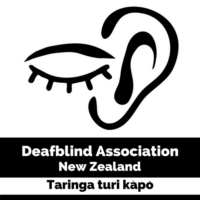Face masks are a way we can protect ourselves and others. You should wear one whenever you can. At some traffic light settings, there are some place you must wear one.
- As a general rule, you should wear a face mask whenever you are indoors. The exceptions are at your home or your place of work if it is not public facing. Your employer may encourage you to wear a face mask even if your job is not public facing.
- When it is hard to physically distance from people you do not know, you are encouraged to wear a face mask.
- Everyone must wear a mask that is attached to the face by loops around the ears or head. This means people can no longer use scarves, bandannas or t-shirts as face coverings.
- You do not need to wear a mask when exercising.
Face masks do not need to be worn:
- by children under 12 — except at Red for those aged 8 years or over or in Year 4 or above when indoors at school and on public and school transport
- at an indoor gathering if there is exclusive use of the venue or defined space, for example weddings or funerals
- on a boat or ship that has no enclosed space for passengers, for example jet boat tours
- on charter or group tours
- on private flights
- by drivers, pilots, staff or crew of the service if they are in a space completely separated from passengers, for example pilot in a cockpit, train driver in a train cab, or a captain on a ferry.
Who does not need to wear a face mask
There are some circumstances where you do not need to where a face covering if:
- there is an emergency
- you have a physical or mental health illness or condition or disability that makes wearing a face covering unsuitable
- you need to prove your identity
- you need to communicate with someone who is deaf or hard of hearing
- you need to take medicine
- you need to eat or drink, if eating or drinking is usually allowed
- it is not required by law.
You also do not need to wear face mask if:
- you are outdoors
- you are exercising
- it is unsafe, for example if wearing one means a driver cannot safely operate the vehicle
- there is an emergency
- you have a physical or mental health illness or condition or disability that makes wearing a face mask unsuitable
- you need to prove your identity
- you need to communicate with someone who is deaf, hard of hearing, deafblind or has a disability which makes it hard to have effective communication
- you need to take medicine
- you need to eat or drink, if eating or drinking is usually allowed
- it is not required by law.
If you cannot wear a face mask
It is recognised that face masks are unsuitable for some people due to disabilities or health conditions. You still have the right to food, pharmacies, education and other services.
If you cannot wear a face mask, you can request a Communication Card from the Ministry of Health. You can show the card to transport operators, retailers and service providers. It can help make it easier to explain that a face mask is unsuitable for you.
You do not have to show a Communication Card if you cannot wear a face mask — but it may help you feel more comfortable.
You can request a communication card through the official Covid 19 website:
